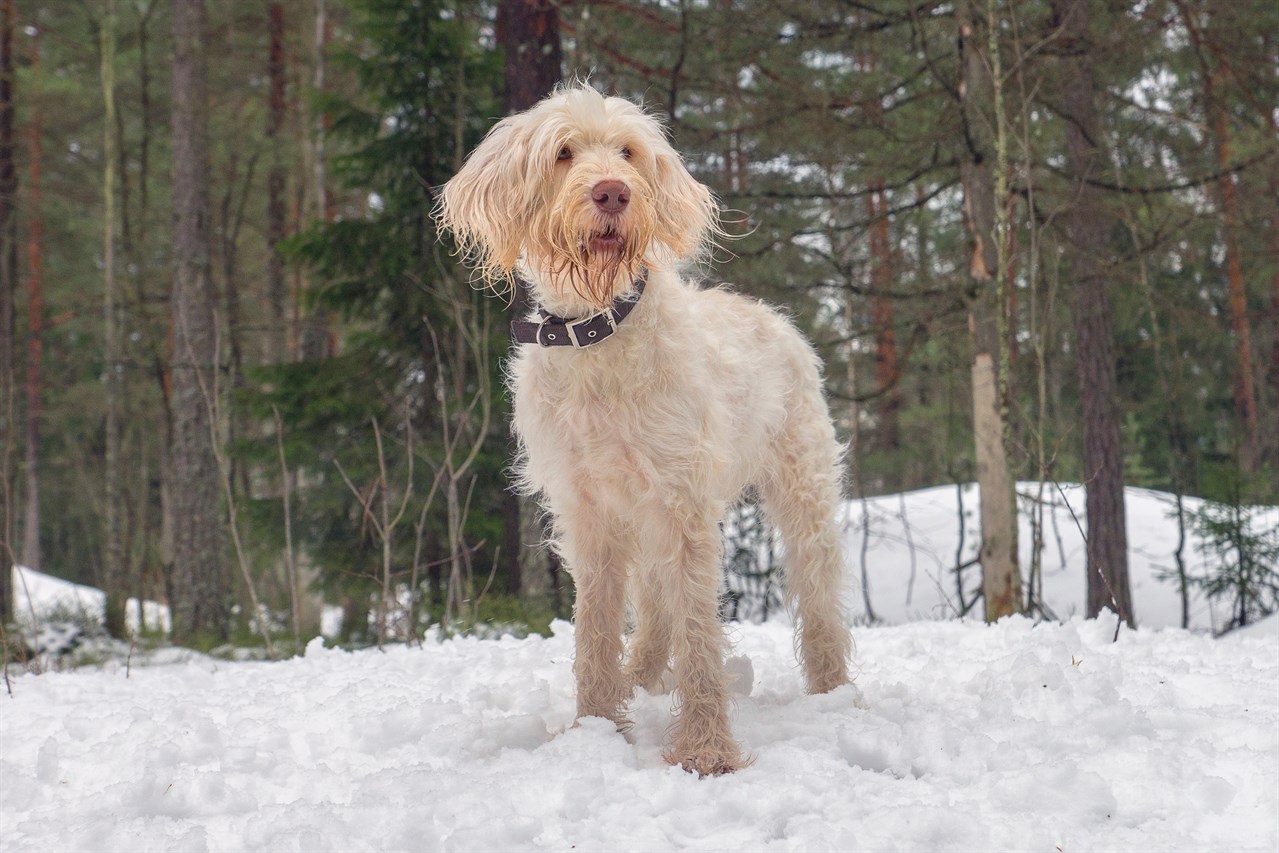Feeding Habits and Food Requirements of the Italian Spinone

Proper nutrition is essential to keep your Italian Spinone healthy and thriving. Understanding their feeding habits and dietary needs is crucial for providing them with the right nutrition throughout their life stages.
Age and Life Stage Considerations
- Puppy Stage: Italian Spinone puppies have different nutritional requirements than adults. During the first few months of life, they need a diet that supports their rapid growth and development. Look for high-quality puppy food that is formulated for large breeds. Puppies typically need to be fed multiple times a day, with portion sizes gradually increasing as they grow.
- Adult Stage: Adult Spinoni require a balanced diet to maintain their energy levels and overall health. Choose a high-quality adult dog food that suits their activity level, whether they are active hunters or more laid-back family companions. Most adult dogs are fed twice a day, but individual feeding schedules may vary.
- Senior Stage: As Spinoni age, their metabolism and activity levels may decrease. Senior-specific dog food options are available, which are tailored to the needs of ageing dogs. These diets often include joint support and reduced calorie content to prevent weight gain.
Protein and Nutrient Requirements
- Spinoni require a diet with an appropriate balance of protein, fats, and carbohydrates. Protein is essential for muscle maintenance and overall health, and it should come from high-quality animal sources.
- Fats provide a concentrated source of energy and contribute to the health of their coat and skin. Healthy fats, such as those from fish or flaxseed, can be beneficial.
- Carbohydrates should come from wholesome sources like grains, vegetables, and fruits. Spinoni do not typically have specific grain sensitivities, but some owners prefer grain-free options.
Portion Control
Be mindful of portion control to prevent obesity, a common issue in dogs. Follow the feeding guidelines provided on the dog food packaging, but adjust portion sizes based on your Spinone's activity level, age, and individual metabolism. It's essential to monitor your dog's weight and adjust their food accordingly.
Fresh Water
Always provide fresh, clean water for your Spinone. Proper hydration is essential for digestion and overall health.
Avoid Feeding Human Food
While it may be tempting to share your meals with your Spinone, avoid feeding them human food, especially foods that can be toxic to dogs, such as chocolate, onions, garlic, and grapes.
Dietary Allergies and Sensitivities
Some Spinoni may have dietary allergies or sensitivities. If you notice signs of digestive issues, skin problems, or allergies, consult with your veterinarian. They can recommend an appropriate diet and conduct tests if needed.
Regular Veterinary Check-Ups
Regular veterinary check-ups are essential to monitor your Spinone's overall health and ensure they are on the right track with their diet. Discuss your dog's dietary needs and any concerns with your veterinarian.
In conclusion, providing the Italian Spinone with a well-balanced and age-appropriate diet is essential for their health and well-being. Tailoring their food to their life stage and activity level, monitoring portion sizes, and keeping an eye on their overall health will help ensure they have a long, happy, and healthy life.
Italian Spinone puppies for sale
- Find Italian Spinone puppies for sale in ACT
- Find Italian Spinone puppies for sale in NSW
- Find Italian Spinone puppies for sale in NT
- Find Italian Spinone puppies for sale in QLD
- Find Italian Spinone puppies for sale in SA
- Find Italian Spinone puppies for sale in TAS
- Find Italian Spinone puppies for sale in VIC
- Find Italian Spinone puppies for sale in WA